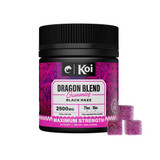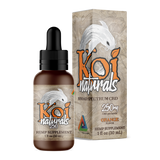As kratom's popularity rises, many users are concerned about whether it shows up on drug tests. Understanding how kratom interacts with standard screenings is crucial, especially if you're subject to workplace testing.
In this post, we'll explore whether kratom can be detected on drug tests, which tests might identify it, and what factors influence its detectability. Whether you're a regular user or just curious, this guide will help you navigate the potential impact of kratom on drug testing.
Will Kratom Show Up on a Drug Test?
It’s not certain whether kratom will show up on a drug test because testing specifically for kratom is uncommon and because kratom is legal at the federal level and in most states.
Most of the 5-panel drug tests that most employers use cannot detect kratom metabolites. Instead, these tests check for common intoxicants and controlled substances such as marijuana, cocaine, opiates, amphetamines, and PCP.
However, more advanced tests like the 10 and 12-panel kits might be able to pick up on some kratom metabolites. Still, they will usually highlight it as a different compound, making the result a false positive.
How Long Does Kratom Stay in Your System
If you’re concerned about triggering a false positive test after consuming kratom, the best way to avoid triggering the false positive result is to not have any kratom in your body at the time of testing, more so if you will be taking a 10 or 12-panel test.
Knowing how long kratom stays in your body can help you manage the expectations and your intake in time for the test.
How long kratom remains detectable in your body depends on the type of test or the sample required for the test. Here's how long kratom remains detectable in the various test samples:
In Your Urine
Some kratom alkaloids can show up on a specialized urine test and remain detectable for up to a week. In most cases, kratom can be detectable in your urine for up to 5 days from your last intake and extend to over a week.
In Your Blood
Blood tests are more efficient in testing for kratom metabolites and can be used to confirm if someone took kratom and even calculate the amount consumed.
Kratom can be easily detected in blood, especially in the more regular consumers. The metabolites will appear in a blood test several days after consumption.
But blood tests have a short detection window that is usually a few hours or up to a couple of days of consuming kratom. Therefore, a urine test is more common because it has a longer detection period.
In Your Saliva
Saliva tests can also be used to identify kratom or its metabolites, but there are currently no saliva tests dedicated to testing for kratom.
In Your Hair
Hair has the longest detection window for drug testing. Most compounds can remain detectable in hair for several months, usually up to three months. The same applies to kratom. However, hair tests are expensive and uncommon, especially for testing kratom.
Summary
You should know that other factors are at play when determining how long kratom can remain detectable in the different test samples.
These include your age, how much kratom you consume and its concentration, and physiological factors like your metabolism.
While there are various suggestions on how to help pass kratom out of your system faster, the surest way to pass the test is to avoid taking kratom until you take the test.





